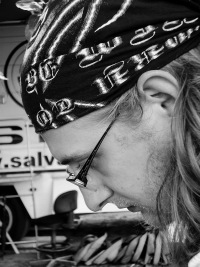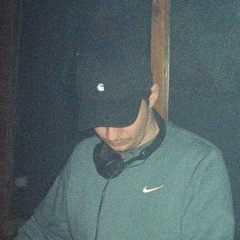ги дебор
общество спектакля
В прошлом категория «священного» оправдывала космический и онтологический порядок, который отвечал интересам господ; она показывала и приукрашивала то, что обществу было запрещено. Поэтому власть как сфера разделения всегда имела зрелищный аспект. Однако всеобщее преклонение перед застывшими религиозными образами означало лишь признание за бедными права на воображаемое продолжение реальной жизни, иллюзорную компенсацию за нищету, которая, впрочем, по-прежнему маячила перед глазами угнетённых классов. Спектакль, напротив, указывает на то, что обществу разрешено, однако разрешённое абсолютно противоположно возможному. В рамках спектакля всё дозволено, но ничто не возможно. Спектакль допускает лишь бессознательную реакцию на практическое изменение условий существования. Спектакль является продуктом самого себя, самоцелью, эта самовоспроизводящаяся структура диктует собственные правила: спектакль — это псевдосакркальная сущность. Он и не скрывает того, чем является: разделяющей властью, которая развивается сама по себе: благодаря постоянно расширяющемуся рынку, благодаря росту производительности, который, в свою очередь, достигается все большей специализацией в разделении труда – отныне труд заменён монотонными механическими движениями сборщика на конвейере. Любое течение, не согласное с таким положением дел, любое критическое сознание уничтожаются тяжёлой, победоносной поступью спектакля.
общество спектакля
В прошлом категория «священного» оправдывала космический и онтологический порядок, который отвечал интересам господ; она показывала и приукрашивала то, что обществу было запрещено. Поэтому власть как сфера разделения всегда имела зрелищный аспект. Однако всеобщее преклонение перед застывшими религиозными образами означало лишь признание за бедными права на воображаемое продолжение реальной жизни, иллюзорную компенсацию за нищету, которая, впрочем, по-прежнему маячила перед глазами угнетённых классов. Спектакль, напротив, указывает на то, что обществу разрешено, однако разрешённое абсолютно противоположно возможному. В рамках спектакля всё дозволено, но ничто не возможно. Спектакль допускает лишь бессознательную реакцию на практическое изменение условий существования. Спектакль является продуктом самого себя, самоцелью, эта самовоспроизводящаяся структура диктует собственные правила: спектакль — это псевдосакркальная сущность. Он и не скрывает того, чем является: разделяющей властью, которая развивается сама по себе: благодаря постоянно расширяющемуся рынку, благодаря росту производительности, который, в свою очередь, достигается все большей специализацией в разделении труда – отныне труд заменён монотонными механическими движениями сборщика на конвейере. Любое течение, не согласное с таким положением дел, любое критическое сознание уничтожаются тяжёлой, победоносной поступью спектакля.
gi debor
spectacle society
In the past, the category of "sacred" justified a cosmic and ontological order that was in the interests of masters; she showed and embellished what was forbidden to society. Therefore, power as a sphere of division has always had a spectacular aspect. However, the general admiration for frozen religious images meant only recognition for the poor of the right to an imaginary continuation of real life, an illusory compensation for poverty, which, however, still loomed before the eyes of the oppressed classes. The spectacle, on the other hand, indicates that society is allowed, but what is allowed is absolutely the opposite of what is possible. Within the framework of the performance, everything is allowed, but nothing is possible. The play allows only an unconscious reaction to a practical change in the conditions of existence. The performance is a product of itself, an end in itself, this self-reproducing structure dictates its own rules: the performance is a pseudo-sacral essence. He does not hide what he is: a dividing power that develops on its own: thanks to an ever-expanding market, thanks to an increase in productivity, which, in turn, is achieved by increasing specialization in the division of labor - from now on, labor is replaced by monotonous mechanical movements of the assembler on the assembly line ... Any trend that does not agree with this state of affairs, any critical consciousness is destroyed by the heavy, victorious gait of the performance.
spectacle society
In the past, the category of "sacred" justified a cosmic and ontological order that was in the interests of masters; she showed and embellished what was forbidden to society. Therefore, power as a sphere of division has always had a spectacular aspect. However, the general admiration for frozen religious images meant only recognition for the poor of the right to an imaginary continuation of real life, an illusory compensation for poverty, which, however, still loomed before the eyes of the oppressed classes. The spectacle, on the other hand, indicates that society is allowed, but what is allowed is absolutely the opposite of what is possible. Within the framework of the performance, everything is allowed, but nothing is possible. The play allows only an unconscious reaction to a practical change in the conditions of existence. The performance is a product of itself, an end in itself, this self-reproducing structure dictates its own rules: the performance is a pseudo-sacral essence. He does not hide what he is: a dividing power that develops on its own: thanks to an ever-expanding market, thanks to an increase in productivity, which, in turn, is achieved by increasing specialization in the division of labor - from now on, labor is replaced by monotonous mechanical movements of the assembler on the assembly line ... Any trend that does not agree with this state of affairs, any critical consciousness is destroyed by the heavy, victorious gait of the performance.
У записи 1 лайков,
0 репостов.
0 репостов.
Эту запись оставил(а) на своей стене Татьяна Фоминова





















